Descrizione
Melting point: undici racconti che, come altrettante sostanze, arrivano in questa straordinaria raccolta a fondersi in una sola miscela, unica e plurale.
Generi e trame che precipitano verso un centro, come uno sciame di stelle inghiottite dall’orizzonte degli eventi: melodramma, fantascienza, confessione, enigma, qui si incontra la vita narrata in tutte le sue forme, un mercante di frutta (piuttosto stupido) rivela lampi di genio; una donna, che in un indimenticabile notturno greco, smette le vesti del giorno per svelare la sua verità a una verdeggiante veste d’acqua; un corriere che deve spedire un pacchetto che diventa “vivo” durante il suo viaggio impossibile.
Il reale si fonde e sprofonda nel sogno, che poi – come disse qualcuno – è proprio la mistura di cui siamo fatti: Baret Magarian lo sa, e lo sa dire, con la sua tecnica superba e la sua voce nuovissima e arcana…
Baret Magarian
Nato a Londra nel 1968, Baret Magarian poliedrico lo è in tutti i sensi: inglese e armeno, scrittore apprezzato da Jonathan Coe e musicista folk caucasico, intellettuale blasé e modello di nudo, giornalista freelance per «The Times» e regista teatrale di sconclusionata avanguardia, Baret sembra costruito apposta per ricondurre a unità le mille sfaccettature dell’umano.
Occasione che questo libro offre in anteprima ai lettori italiani.




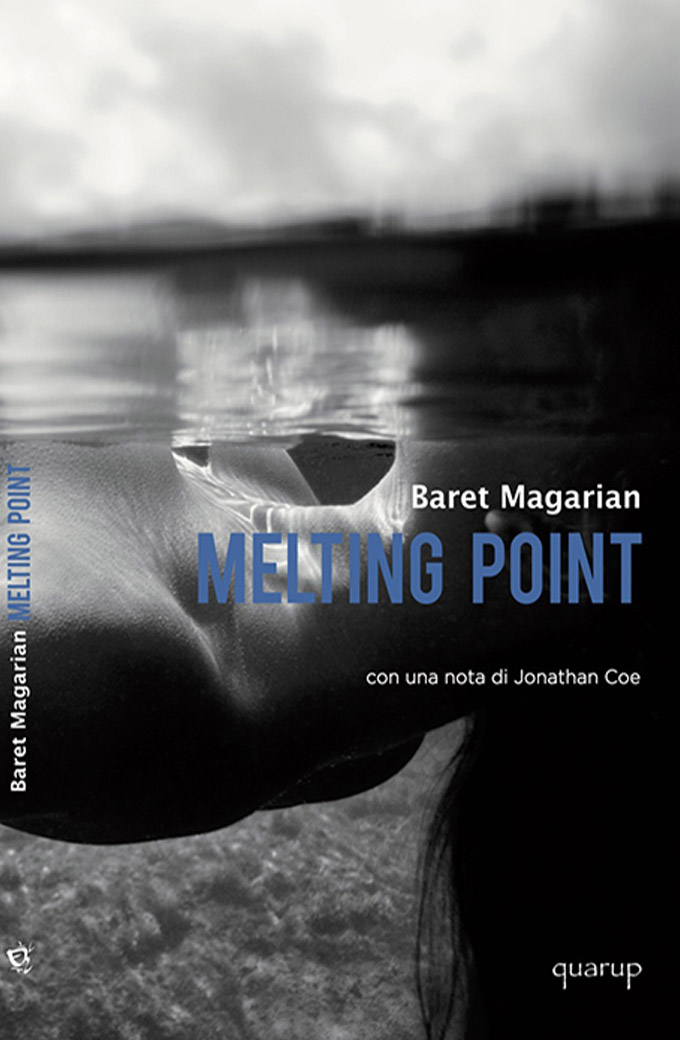
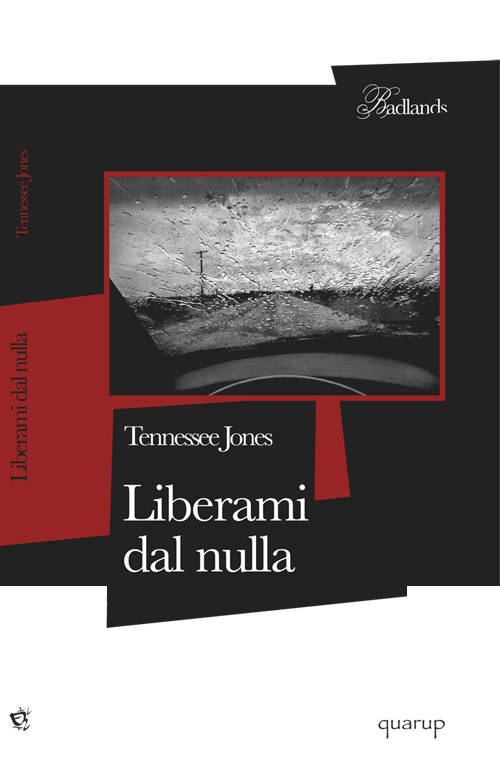
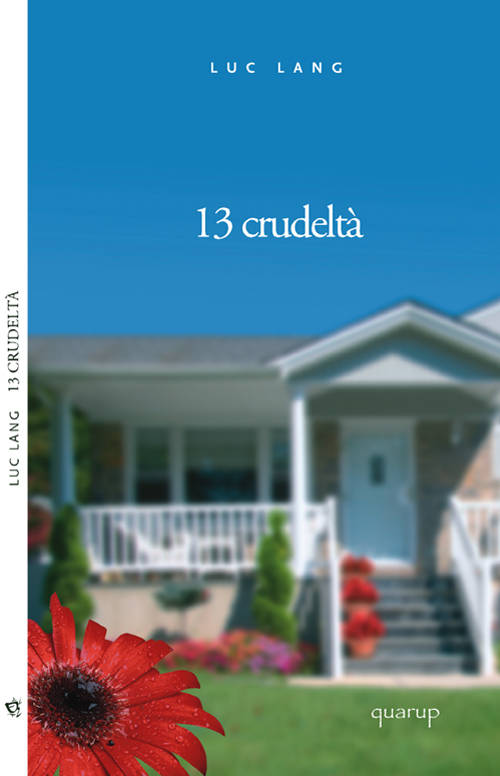
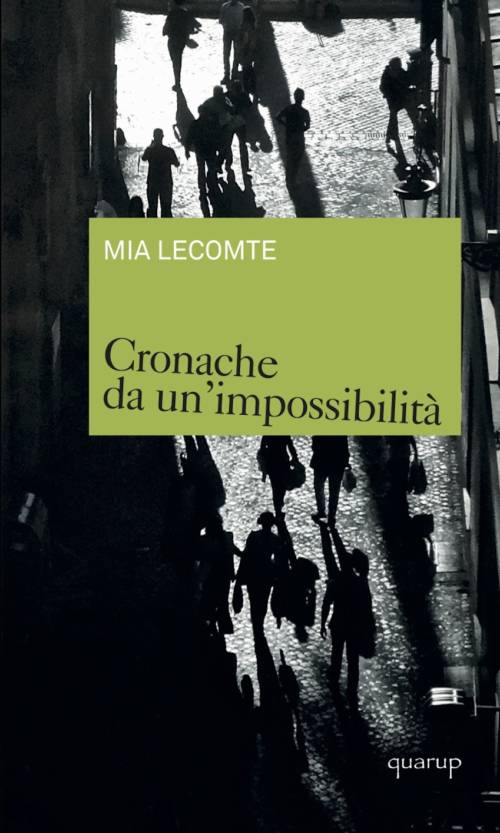
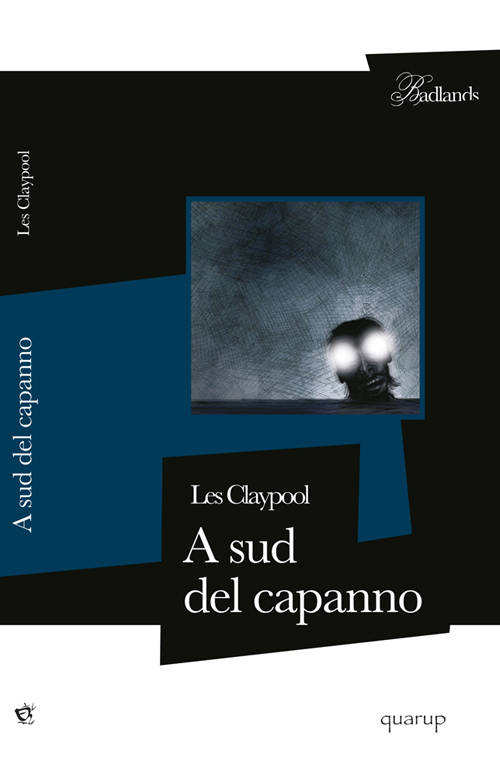
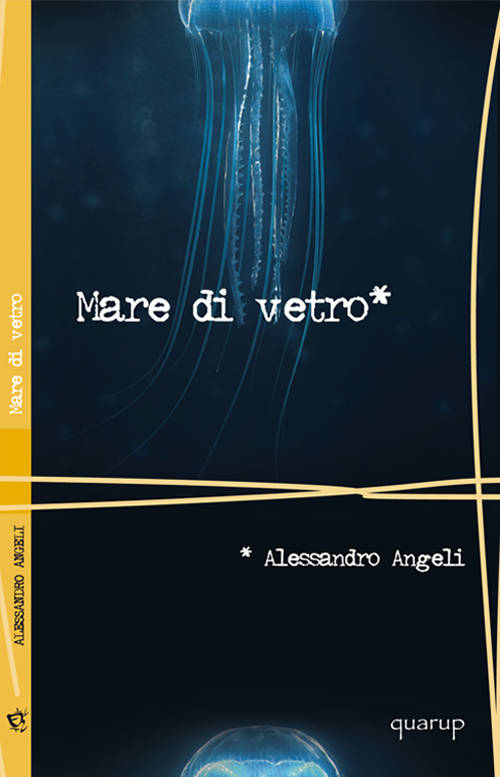
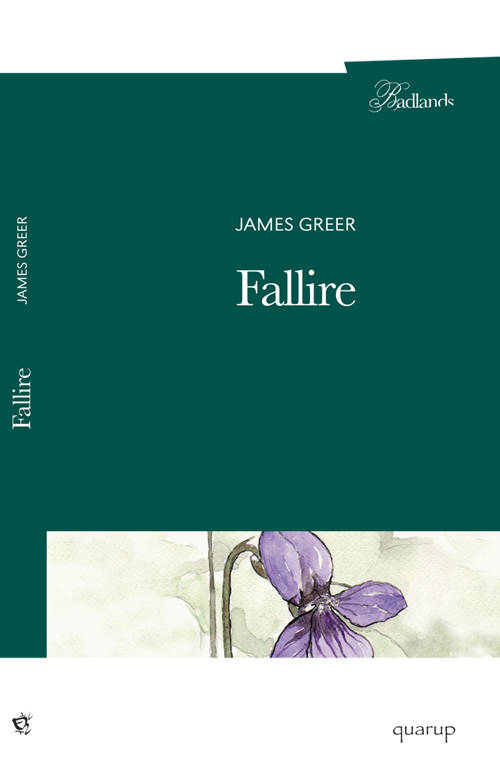
Marco Incardona –
“Solo chi sa aspettare ottiene il meglio”
di Marco Incardona, Il Tempo di Dioniso, 15 luglio 2017
Deve essere senza dubbio vero che è proprio dai momenti di crisi collettiva e epocale, come quello che stiamo vivendo, e nel quale l’Italia sembra essere in drammatica avanguardia, che emergono, d’improvviso, quasi spuntati da una dimensione parallela, i documenti più rari e preziosi per comprendere il tempo presente.
Ammesso che ve ne fosse bisogno, Melting Point di Baret Magarian (edito da Quarup, meritoria casa Editrice di Pescara, nel 2017), ne rappresenta un’ulteriore prova.
Pensando al panorama letterario italiano di questi ultimi tempi, appare, in effetti, sorprendente che un libro come Melting Point appaia prima nella lingua di Dante, grazie alle traduzioni attente e efficaci di Andrea Sirotti, Elena Moncini e Simone Pagliai, piuttosto che in inglese.
Di questo, nella sua postfazione incisiva e penetrante, Jonathan Coe sembra esserne perfettamente consapevole, affermando:
“Mi sorprende che solo adesso, a vent’anni dal nostro primo incontro, venga pubblicato per la prima volta un volume dei suoi racconti – e oltretutto nemmeno nella sua lingua: Ero certo che il suo talento sarebbe stato riconosciuto molto tempo prima.”
E leggendo con l’attenzione dovuta questo pregevole libro di racconti, non si può che convenire parola per parola con Jonathan Coe e rimanere sorpresi che questo libro venga alla luce solo ora, e per giunta in italiano.
Allo stesso tempo, anche e soprattutto per i motivi appena elencati, questo libro finisce per essere ancora più significativo e un apporto prezioso per le lettere italiche. In un panorama troppo spesso contraddistinto dalla vuota riproduzione, per non dire di peggio, di modelli stilistici e narrativi mutuati dalla letteratura anglosassone, Baret Magarian irrompe con la forza e la naturalezza di chi ne è consapevole e compiuta espressione.
Il suo stile, tagliente, controllato e sempre attraversato da una sottile autoironia verso lo stessa pretesa che sottende l’atto di scrivere, smaschera d’emblée la disarmante vuotezza contenutistica di certe ambizioni nostrane.
Melting Point è dunque un libro non solo da accogliere con favore e soddisfazione, ma innanzitutto da far penetrare, come una linfa vitale, nel tessuto sfibrato della nostra letteratura. Essere consapevoli di questo dono, significa introiettarlo dialetticamente come un altro e un altrove che si ribaltano, improvvisamente, nella familiarità dei gesti quotidiani.
Ma è certo che non è facile seguire il mondo dello scrittore Anglo-Armeno e renderselo familiare, soprattutto per la quasi inquietante capacità, che in lui sembra innata, ma che invece frutto di un laborioso lavoro di scavo e di penetrazione, con quale egli è capace di aprire varchi e di illuminare ad arte interstizi della realtà del tutto inaspettati.
Quello che, in effetti, colpisce di più della scrittura di Baret Magarian è l’apertura stessa della sua scrittura e del suo stile. Un’apertura cosmica quasi del tutto assente nel panorama della nostra letteratura.
Eppure sarebbe fin troppo facile saltare alla facile conclusione che tale apertura derivi dall’altrove di cui Magarian è oggettivo rappresentante. Non è nella reiterazione e nel gioco di ruoli che si gioca la partita, ma in un incessante e quasi maniacale scavo nelle profondità del reale.
Sembra quasi che Magarian sia guidato da un’infaticabile sete di altrove, di alterità da demistificare con pungente ironia e da restituire nella loro latente assurdità. Cosmicità che non conosce requie, che non si appacifica nella conciliazione imperante del mondo usa getta della modernità liquida. Per chi è in cerca di facile pacificazione, il suo stile può apparire a tratti inquietante. Diventa invece preziosa guida verso lo scarto del possibile, per chi invece cerca dalla letteratura qualcosa che non sia la mera agiografia del reale.
La galleria di personaggi che i racconti di Melting Point prospettano un mondo parallelo e quasi sospeso, come se l’autore non volesse risolversi a pendere da una parte piuttosto che dall’altra. Per molti di essi, viene da pensare al famoso saggio di Jacques Derrida su Antonin Artaud, personaggi entre critique et clinique, nel quale patologia e inquietante comprensione del mondo si tengono per mano senza soluzione di continuità.
“Manicomiali” i personaggi di Baret Magarian lo sembrano innanzitutto per una sorta di ribaltamento dialettico della realtà, di cui egli sembra farsi muto e voluto interprete.
Se nella realtà di un mondo post-ideologico perché dominato da un’ideologia unica, i personaggi (che per inciso siamo tutti noi) cercano di stare a galla a forza di finto pragmatismo e cinismo, i personaggi di Melting Point operano il movimento diametralmente opposto.
Il loro cinismo apparentemente naturale e compiuto, proprio quello che tutti noi desidereremmo avere per sfuggire dalle trappole “mortali” dell’amore, della fede e dell’ideologia, finisce immancabilmente per non tenere e esplodere in mille schegge impazzite.
La potenza dei sentimenti di questi racconti indimenticabili, non nasce dunque dal modo con cui lo scrittore ce ne parla direttamente, ma dal modo con il quale egli ce li prospetta come orizzonte desiderabile per sfuggire alla drammaticità della realtà quotidiana. Più propriamente Magarian ci svela l’inaccettabilità del reale così com’è, prosciugando lo stile, frenando l’ironia, modulando con sapienza i déclics letterari, spalancando silenziosamente le porte al fragore nel non detto che impera nelle nostre esistenze.
Scrive alla fine del suo racconto Salvatore: “Quindi una specie di lieto fine a questo grosso casino del cazzo c’è stata, mi pare”
Una “specie” appunto, sta ora ad ogni singolo lettore e lettrice trovare la sua.
Leggi la recensione nella sua pagina web
Mundy Walsh & Lyall Harris –
Ampersand interview 6 – Author Baret Magarian: “My favorite joke? That’s easy. Boris Johnson.”,
di Mundy Walsh & Lyall Harris, THE SIGH PRESS LITERARY JOURNAL
Baret has been published in World Literature Today, Panurge, Darker Times, Voyages, El Ghibli, Sagarana, The Whitefly Press anthology HOTell and Journal of Italian Translation, and his poetry has appeared in Collectivo R, Semicerchio, Contrapasso, Iris News, and Stanza 251.
His monologue The Pain Tapestry will be staged in the autumn of this year at Torino’s Espace, with the noted Italian-American actor Roberto Zibetti in a piece of total theatre that utilises live music, paintings and film. Baret is also a composer of piano music in the vein of Alkan and Jarrett, available for free listening at Soundcloud – Floto Music. His collection of short stories Melting Point has just been published in Italian translation by Quarup. Jonathan Coe, in his introduction, compares the stories to the work of several key Modernist writers.
What book comes closest to capturing something about you? What is this aspect?
It’s probably Steppenwolf, which is a great great book in my view. The book is an amazing dissection of the need for solitude and the consoling and contaminating qualities of it. I don’t like to admit it but I am a very solitary person I think – I love people but can only be sociable for small bursts of time – after which I need to retreat into tenebrous realms. Harry Haller, the hero of the novel, is a hypersensitive and he spends his time roaming and searching for something – some kind of artistic or spiritual perfection that always eludes him. I am like Harry, a desperate romantic, and romantics, more than other kind of people, are prone to resolving eventually into cynics; indeed you might say that romantics and cynics are really two sides of the same coin.
What is the biggest personal obstacle you must overcome in order to write?
Chronic laziness – I am by nature exceptionally lazy and would much rather do anything else than write. I am also a master of procrastination, so it’s a lethal combination. It’s also something to do with the fact that I can’t abide writing what I consider to be fluff or filler material – and so I have this great allergic reaction to my own writing when it is mediocre – to avoid the considerable pain of this I simply derail the issue altogether by not writing anything at all.
What is something few people know about you.
Interesting question. Maybe the fact that I can speak Armenian – it’s never really in evidence because I never really have the opportunity to speak it!
At an NYU panel discussion on literary arts in Florence (spring 2017), you described that moment when an idea comes—an exciting idea, worthy of pursuit—and you want to capture it before it drifts off, but without squashing it. First, what are the particular signs that you’ve encountered a worthy idea? And, second, how do you develop these ideas while also letting them breathe and take the shape they “need” to take; that is, how do you allow them to be yours and not yours at the same time? Can you tell our readers a little bit about this process?
I think when you have encountered a worthy idea you sort of feel it physically – it’s like a little contraction in your stomach or in your heart. You just sort of know. It’s got something. And there is a light-headedness about the experience – it feels rather exciting, but in a delicate way. But those moments are always, I find, hovering around the threshold of forgetfulness and oblivion. I think it’s because they emerge from a very delicate area of the brain – one that is defined by a sense of the nebulous – they emerge very delicately and they can dissolve very easily as a result – so you have to be very attentive and careful and to capture them with a jotted down word or two – ideas are very very close to the condition of silence. You develop the idea by listening to it, by not imposing your own agenda, and you let the idea show you its way. Sometimes that can happen quickly and painlessly, sometimes it takes time. But the process should remain organic and soft and unforced. Walks, books, reading, physical movement, open spaces, changes in perspective, observation of people, music: all of these things can help. It’s like a courtship. The idea has its origins in you but if the idea is any good it terminates at a place far far away from the subjectivities of self.
It has been said that artists pursue one question in different ways throughout their work. Would you say this is true of your writing? If so, what is your question?
I am not sure about that. I write about many different things and in many different registers. I like to stretch writing and to stretch genres and contexts and stories. I am always trying to cram in as much as possible, to find a way of making a sentence malleable and dexterous, so that it’s working beyond the capacities of a normal sentence. But I would say that this “busyness” probably has its roots in the way in which I view the world – which is essentially in a rather intense way. I am constantly overwhelmed by the sheer force of sensory perception and by the details, clamour, richness and terrors of this world. So my writing is probably a product of this dense way of filtering and processing reality. In addition I have always been fixated on the notion of identity and what makes a self or an “I.” I want to uncover the self beyond the self, the I beyond the I. I am always watchful for the existence of a shadow self – and that is the dominant theme of my Venetian novella Mirror and Silhouette.
You have a novel out this summer, The Fabrications. How did living in Florence influence this project?
Well I have to say that Florence played a fairly peripheral role in regard to the novel. The novel was conceived of and written principally in London. I did carry out significant stylistic revisions while I was living in Florence but the town itself does not really feature in the narrative – Florence and Italy are much more in evidence in the novella that I referred to above.
With the world the way it is and the innumerable distractions in daily life, how do you find the time and dedication to pursue something as ephemeral as an idea?
It’s very hard, but in my case it’s a question of slowing down, cutting out all the noise, and reflecting, thinking, being. One should always carry a notepad because you never know when an idea will come. However I tend to think that there is a strong correlation between creativity and being at peace. In order to attain that peace one has to try and nurture stillness and pure thought. The mind has to be free to think, reflect, find connections, and to roam and play. It’s a question of being alone and of being still. Observation of others, of nature, of natural phenomena can help to induce an almost trance-like state. I think that state is conducive to the pursuit of ideas.
Tell us something that recently struck your funny bone or share your favorite joke.
My favorite joke? That’s easy. Boris Johnson.
If you could shout something from a mountain top, what would it be?
Never give up!
Leggi la recensione nella sua pagina web
Ampersand-6_Baret-Magarian.compressed (trascinato)
Irene Roberti Vittory –
I racconti di Baret per un viaggio nelle fragilità
di Irene Roberti Vittory, Corriere Fiorentino
È raro che un libro venga pubblicato, al suo debutto, in una lingua che non è quella originale, quella in cui è stato pensato e scritto. Così è avvenuto per Melting Point (quarup Editore) dello scrittore anglo-armeno Baret Magarian, presentato al Caffè Letterario delle Murate (con l’autore c’era lo scrittore Marco Incardona). Intrisa di humor nero – perché «l’ironia è uno strumento di difesa dal dolore», dice Magarian – questa raccolta di racconti tra loro speculari, legati come a formare un cerchio narrativo, percorre e descrive le fragilità umane. Fatti e sensazioni devono rapportarsi al tempo che passa, «una dimensione astratta e concreta allo stesso tempo, un paradosso che si lega alla letteratura: lo scrittore insegue le parole per tendere al punto di non parola». Ma il viaggio nella propria interiorità non è inutile: «Proprio per la fragilità che caratterizza la vita, bisogna avere speranza e sensibilità».
Leggi la recensione nella sua pagina web
Marlena Smith –
A Q&A with Baret Magarian
di Marlena Smith, Scribblings of a southern belle, 18 settembre 2017
Baret Magarian is an Anglo-Armenian author based in the cradle of the Renaissance—Florence, Italy. A former freelance journalist for The Guardian, The Times and The Daily Telegraph, among others, he recently published The Fabrications with Pleasure Boat Studio. Through dark comedy and a band of eccentric characters, The Fabrications explores how identity, fame and celebrity are constructed through the trials and triumphs of Oscar Babel, a young and unremarkable man who unwittingly becomes the messianic face of a movement, thanks largely to a sleazy PR agent and the gullibility of the masses. An extremely topical page-turner that will leave you questioning your own reality long after you finish reading! Let’s get to know Baret and his writing a little better.
1) Where did you get the idea for The Fabrications and why do you think it’s an important and culturally relevant read today?
I was on a bus from London to Oxford thinking about how people can exchange energies and even personalities, and the idea seemed to me to be fruitful and interesting and it started to knock on my door and wouldn’t go away. That idea was eventually fused with another – the notion of a fiction that comes true, and eventually the novel was born. I think The Fabrications is important because at its core is an investigation into some very topical issues – manufactured fame, invented facts, the manipulations of the Internet, the meaning of identity, the difference between the fake and the authentic, and how much of our search for love is bound up in wearing or removing our masks.
2) What is your writing process like?
Total chaos! I scribble notes everywhere and have various bits of paper, cards, A4 sheets that eventually accumulate and become a bolus of data. I always make initial notes with a pen and paper – I like to jot down notes manually at the early stages of a project and then I shift to the computer when I start to write the actual text. I have a lot of files, with different colours for different projects and I like to buy pens and notepads obsessively but they are all out of sync and disordered and full of incongrous ideas and perceptions, lists giving way to obsessions giving way to story ideas. All I really care about in life can be found within the confines of a stationery shop, I have realised.
3) What’s the biggest challenge for you as an author?
Trying to overcome my inner critic who is constantly whispering “forget it, give it up, you are not good enough, go for a beer instead, who are you kidding?”
4) Could you imagine The Fabrications being made into a movie? Why or why not?
I can imagine the book being filmed yes because, firstly, it’s a very visual novel. I was careful, when I wrote it to try and give the scenes and settings a strong visual dimensionality. I knew that I wanted the novel to possess a strong visual imagination in which the reader could imagine him or herself in a kind of displaced yet immediate way, watching the action like a silent bystander. This visual element obviously lends itself to a cinematic treatment of the story, and the novel has many levels of conflict, which, I am told, is the key to good screenplays and films these days. I think there is a lot of forward motion in the plot of The Fabrications – again, a factor in a good film, and there are many different memorable, grotesque characters – a hero who is also an anti-hero, a villain, a heroine, an angel, a servant, a series of father figures, and many cameos. The novel is very theatrical too so I think it would make for a great stage play or even a TV mini-series. I think there’s enough incident and intrigue there to power the engines of a visual medium. Visual drama – TV, theatre, film – requires that kind of energy, that kind of elevated tension. My novel isn’t merely introspective or “interior” – there’s a hell of a lot of action and events!
5) What are some of the book’s themes that, to you, are personally significant? Do you see them recurring in your other work as well?
My writing all seems to be about the search for identity and The Fabrications features this idea quite prominently. I am fascinated by how we compose our own identies and where they come from: how much of ourselves derives from others, from friends, from art and so on. This is a theme that has always interested me and I think it’s an inexhaustible subject to be honest. The idea also informs my book of short stories, Melting Point and my novella Mirror and Silhouette. So to some extent it’s in all my writing. The Fabrications also asks questions about sexuality, synchronicity and free well. Are we living out someone else’s script – this is a question Oscar finds himself asking when he realises a friend’s fictional story about his life starts to manifest in reality. And is there any kind of structure to our lives or is it all just random? These are some of my themes I think. I try and present them through satirical and at times humourous prisms but I think they form the cornerstone of my work.
6) Fans of which authors and genres might enjoy The Fabrications?
This is a book which, I think, would appeal to fans of magical realism and novels that reject strict reality and verisimilitude. I can imagine that the novel might appeal to fans of fantastical writing as well, to people who have read and like novels like The Master and Margarita, The Brief Wondrous Life of Oscar Wao, The Unconsoled, The Trial, The Recognitions, The Corrections, The Wind-up Bird Chronicle, and writers like David Forster Wallace and Thomas Pynchon. There’s a lot going on in the novel – slapstick, metaphysical speculation, ideas, twists, turns, tragedy and comedy, but most of all, a damn good read that transports you into another dimension – which all good fiction should do on some level.
7) Who are your “heroes of fiction” – famous characters with whom you identify?
I identify a lot with Harry Haller of Steppenwolf because he is such an amazing mixture of the romantic and cynic, with The Time Traveller in The Time Machine because he is so obsessed with mankind’s ultimate improvement and with utopia, with Tomas in The Unbearable Lightness of Being because he is so in love with women, with Christine in The Post Office Girl because she is given a glimpse of paradise, which is then snatched away, and with Elizabeth Bennett in Pride and Prejudice because she is forced to realise that she isn’t as clever as she thinks she is.
8) With whom, out of your own characters, do you most closely identify?
I think probably in The Fabrications with Daniel Bloch because he is a writer and he is privy to all of writing’s joys and sorrows and, in my shorter fiction, with Kirsten, the heroine of a story of mine called “The Watery Gowns”, because she is given a glimpse of something that is nameless which allows her to live more completely and more joyfully later on. We are all searching for that “bridge”. I guess which would allow us to make sense of things and be ourselves, truly and beautifully.
9) In your opinion, is it better for a novel to end with more questions or answers?
I think the important thing is that the novel stimulates thoughts and allows the reader to have certain realisations about life and about the nature of relationships. If a novel can also help to lift depression, darkness and negativity by making the reader feel, laugh, cry, that is a real accomplishment in my, excuse the pun, book! That’s what I strive for anyway and the most precious books have enriched my life no end. If a novel can throw up answers in these crazy times that’s nothing short of a miracle!
Learn more about this fantastic author on his website at http://www.baretmagarian.com/
Leggi la recensione nella sua pagina web
Alessio Brandolini –
“Melting Point”
di Alessio Brandolini
Melting Point è l’esordio dello scrittore e musicista inglese Baret Magarian (Londra, 1968), da tempo trapiantato a Firenze. Sono 10 racconti che sorprendono (un po’ meno gli ultimi due) per la bravura della narrazione (veloce e precisa) e l’acutezza dello sguardo che perfora muri, apparenze e con leggerezza sa oltrepassare la barriera del tempo, del razionale. Per l’esplorazione di mondi e luoghi, di personaggi così diversi l’uno dall’altro che si incontrano (o scontrano) in questo crogiolo che è la nostra vita e nel quale talvolta si può scorgere il momento esatto, il punto di fusione suggerito dal titolo in inglese, lingua nella quale sono stati scritti i racconti per poi essere tradotti per lo più da Andrea Sirotti ed Elena Mancini. La tela del dolore è la prima tappa di questo viaggio nella letteratura di Magarian, una storia misteriosa con al centro un “pacco pazzo” che contiene un manoscritto. Il terzo racconto s’intitola Isola ed è un piccolo gioiello (un romanzo in embrione) che contiene all’interno un’altra storia generata da uno slittamento temporale: tra ironia e follia, geniale e un po’ slegato ma “siamo tutti ad avere qualcosa di scassato in testa”. Anche il successivo, Cancellare le onde, sorprende perché è l’opposto del canone del “realismo magico”: qui è la magia a farsi realtà quotidiana e “la complicata ragnatela di cicatrici allo stomaco” del protagonista è il segno che il proprio fallimento è stato così totale da venirne poi fuori rafforzato, tanto da imboccare un nuovo cammino. Il sesto racconto Salvatore è ambientato a Firenze e sviluppa la vena tragicomica dell’autore. Il successivo Gli occhi oppiati del Buddha, ambientato in Sri Lanka, è forse il più elaborato e ambizioso e prova a dar forma a un mondo disordinato, dove un luogo incantato può trasformarsi in inferno e una tragica avventura nella comprensione della propria esistenza, nel punto di fusione dei propri contrastanti sentimenti. Alba, ambientato in Calabria, è nella linea di Salvatore, ma di un realismo più tragico. Chiudono il libro Meltdown e Le vesti d’acqua.
L’umorismo sottile e la freschezza (lo scatto rapido) della scrittura di Baret Magarian si fondono alla sua capacità di descrivere la complessità del nostro mondo, dei sentimenti umani. Molti i riferimenti (ma inseriti con destrezza e discrezione) musicali, cinematografici e letterari.
Bella la nota finale dello scrittore inglese Jonathan Coe che per primo, vent’anni fa, dopo aver letto alcuni inediti di Baret Magarian, fiutò il talento e l’originalità della sua scrittura.
Leggi la recensione nella sua pagina web

Alfredo Ronci –
Baret Magarian, “Melting point”
di Alfredo Ronci, Il Paradiso degli Orchi
Qualcuno di voi dirà: ma chi è questo qui e soprattutto ma perché proprio lui?
Non ho una risposta precisa. Certo, conta la casa editrice (ne ho un ottimo ricordo e visto che è piccolina, mi auguro che possa resistere).
Certo conta la nota conclusiva di Jonathan Coe (di cui mantengo un’idea fantastica sul perché ha scritto un romanzo grandioso e poi niente più… almeno per me).
Certo, contano i riferimenti culturali che sempre lo stesso Coe dice nel suo saggetto conclusivo (Woody Allen, Samuel Beckett – addirittura! – David Lynch).
Ma a farla breve, ho scelto di leggere Magarian (che fa innumerevoli mestieri – pianista, modello di nudo (cacchio), giornalista freelance e regista teatrale d’avanguardia) perché mi è stato chiesto di farlo ed io, molto garbatamente, l’ho fatto.
Veniamo a noi. Che dire? Io partirei da una dichiarazione dello stesso Magarian: Perciò sforniamo tutti merda, perché la merda è il mezzo espressivo della nostra epoca, proprio come il blank verse era il mezzo espressivo dell’era shakespeariana e il romanzo lo era dell’Ottocento.
Giusto, non solo sforniamo merda, ma essenzialmente lo siamo, e assai gradito è lo scrittore che ce lo ricorda e lo tiene a mente. Per il resto non vedo altro di stuzzicante.
Intendiamoci, Magarian ha una buona penna, a volte buonissima, e sa rendere al meglio gli stadi intermedi della mente umana (qui è il caso di citare Lynch, ma al limite potremmo citarne altri), ma non ci sentiamo di innalzarlo a nuova sostanza letteraria.
Sa affrontare i generi: tratta il noir e il poliziesco come fosse una cosa naturale ed istintiva (mica vero, accidenti), ma più che lampi di genio rivela un’attitudine particolare alla registrazione degli eventi. Ma sappiamo che questo può essere anche il segno di altri scrittori contemporanei.
Dei 10 racconti uno in particolare si è fatto sentire Cancellare le onde (perché poi ricorda molto le stesse sorti dell’autore): quello in cui non si riesce a capire come la fortuna scelga le persone e i suoi errori (perché a volte sono proprio errori). L’esito non è per niente risolutivo, anzi, e noi rimaniamo come lo scrittore. Ad attendere che qualcosa di meglio prima o poi possa capitarci.
Però Magarian merita un gustoso. Sta bene.
Leggi la recensione nella sua pagina web